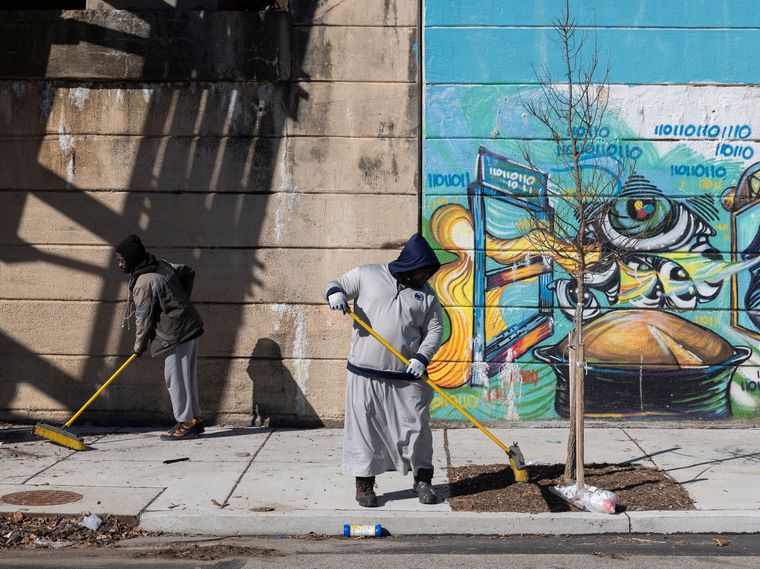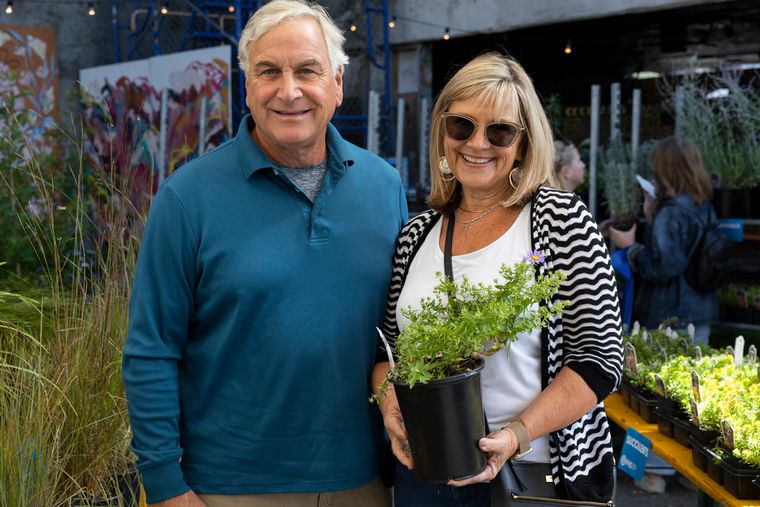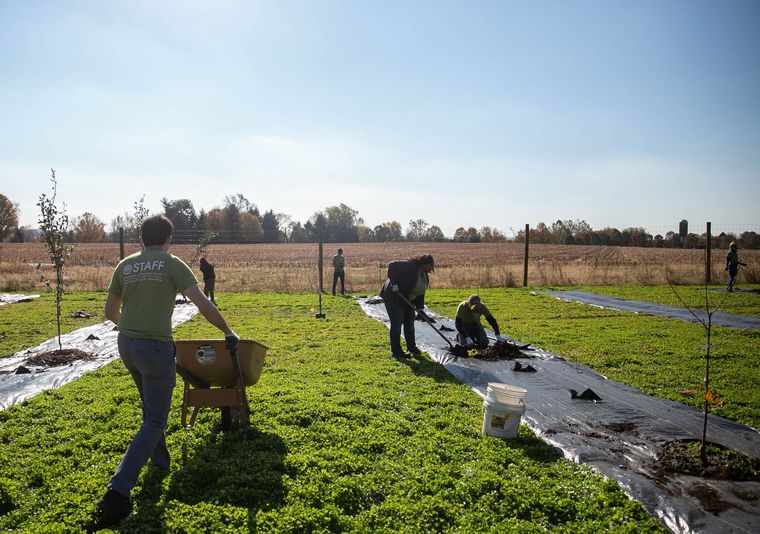



4 Benefits of Community Gardens
phs community & events

Urban agriculture has many benefits for individuals, families, and communities. The Pennsylvania Horticultural Society (PHS) is an authority in this field, supporting more than 170 community gardens and food production sites for neighbors in and around Philadelphia. Each community unites to care for its garden, growing produce, flowers, and other ornamental horticulture to transform vacant spaces into green plots that invite interaction.
Justin Trezza, PHS Program Director for Community Gardens, was featured on the Beginner’s Garden podcast where he explained the benefits of community gardens. To introduce the topic, Trezza showcases research done in collaboration with PHS, the University of Pennsylvania, and Columbia University which showed “greening a vacant space drastically reduces feelings of depression by up to 60% and a reduction of gun violence by 20 or more percent.” Trezza also explains the qualitative impacts of community gardens and urban agriculture, including supporting access to fresh food, healthy living environments, deep social connections, and economic opportunities.

1. Access to Fresh Food
The food crisis, or lack of access to healthy, affordable foods, is affecting people all over the world — even those right in our backyard. During periods of recession and inflation, it can be especially difficult for members of historically disinvested communities to access healthy foods. Placing community gardens and food production sites in these neighborhoods gives families and individuals a chance to grow their own fresh food and fight the food crisis.

2. Healthy Living Environments
Trezza explained that many urban environments, specifically older cities, have a “combined sewer system.” This means all faucet and toilet water go to the same place and then funnel out to the same place. This becomes an issue when the area gets large amounts of rainfall. Rain overflows the already crowded system, causing the sewer water to leak into and pollute major rivers and bodies of water. In Philadelphia, when the combined sewer system overflows, it causes runoff into the Schuylkill River.
Community gardens and urban agriculture help mitigate this problem by creating more permeable surfaces in the city. More permeable surfaces allow the rain to be absorbed by the soil instead of flowing into the sewer system.

3. Deep Social Connections
Community gardens help build social cohesion by bringing together people who otherwise would rarely interact. Trezza says he’s seen community gardens bring together people of all ages, races, and abilities. No matter how different they may seem, they all have one thing in common — their passion for gardening.
Trezza refers to the Growing Home Gardens — a community garden project in South Philadelphia created in partnership with PHS, Neighborhood Garden Trust, and the Nationalities Service Center — to further explain the connection these gardens foster. These urban gardens have become places for refugees from Southeast Asia to continue the agricultural traditions they had established back in their home countries. It gave them a safe space in a community that looked, spoke, and ate differently. Since they were constructed, the gardens became a social hub that integrates refugees and South Philadelphians, encouraging them to share stories and native foods, bridging the gap between cultural differences.

4. Economic Opportunities
Since most community gardens are run by volunteers, they don’t necessarily create jobs, but Trezza explains how they promote economic stability. Community gardens help significantly reduce families’ grocery bills by giving them a chance to grow their own fresh foods. Harvesting their own produce replaces a portion of what otherwise would need to be purchased.
Creating welcoming, accessible gardens that directly respond to the needs of the community is essential for promoting health and well-being. These gardens foster the creation of a united community in a divided world. To learn more practical tips to start and maintain a garden in your community, listen to the Beginner’s Garden podcast episode featuring Justin Trezza.
The PHS Community Gardens program is supported in part by a grant from The Albert M. Greenfield Foundation, the City of Philadelphia’s Division of Housing and Community Development, and the Department of Conservation and Natural Resources.
Create access to fresh food through at-home food gardening. Learn how PHS is promoting this practice through our Community Gardens program.


